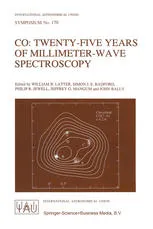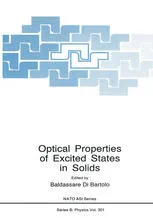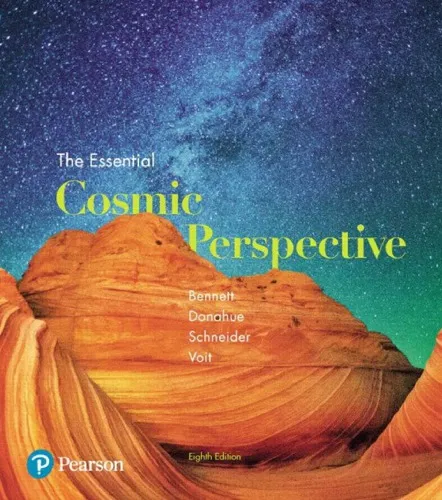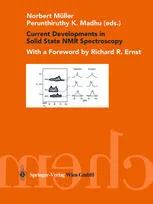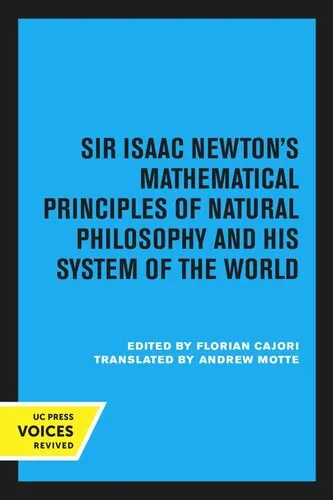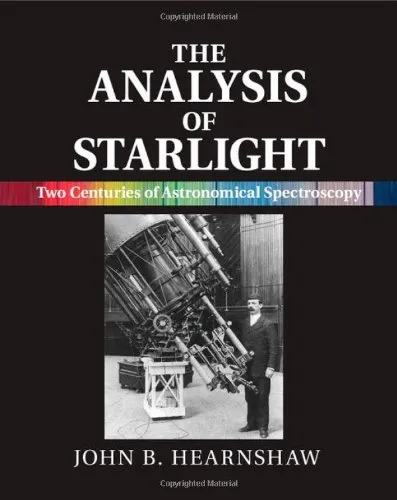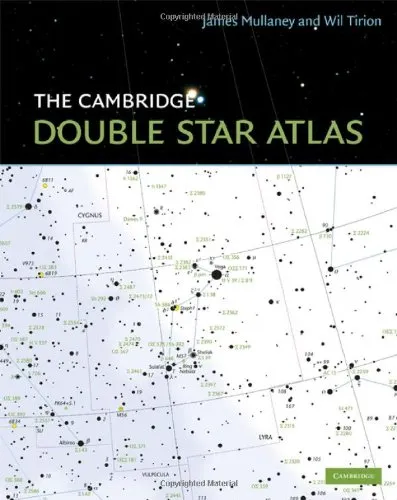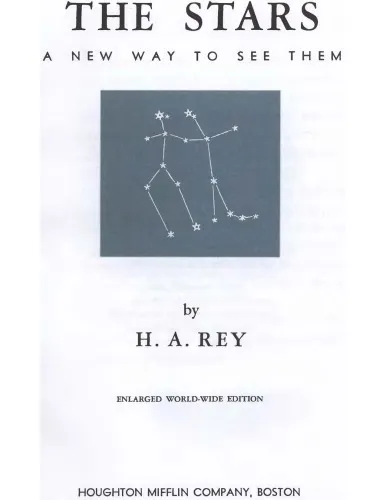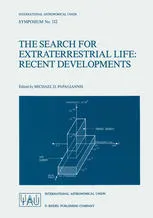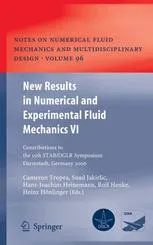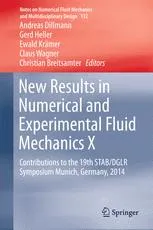CO: Twenty-Five Years of Millimeter-Wave Spectroscopy: Proceedings of the 170th Symposium of the International Astronomical Union, Held in Tucson, Arizona, May 29–June 5, 1995
4.5
بر اساس نظر کاربران

شما میتونید سوالاتتون در باره کتاب رو از هوش مصنوعیش بعد از ورود بپرسید
هر دانلود یا پرسش از هوش مصنوعی 2 امتیاز لازم دارد، برای بدست آوردن امتیاز رایگان، به صفحه ی راهنمای امتیازات سر بزنید و یک سری کار ارزشمند انجام بدینکتاب های مرتبط:
معرفی کتاب
کتاب CO: Twenty-Five Years of Millimeter-Wave Spectroscopy اثر بسیار ارزشمندی است که به بررسی دقیق تاریخچه و یافتههای ۲۵ ساله طیفسنجی موج میلیمتری میپردازد. این کتاب که حاصل گردهمایی ۱۷۰اُمین سمپوزیوم اتحادیه بینالمللی ستارهشناسی در توسان، آریزونا، در سال ۱۹۹۵ است، شامل مقالاتی پژوهشی درباره CO (مونواکسیدکربن) و کاربردهای گسترده آن در نجوم است. این اثر، منبعی بینظیر برای ستارهشناسانی است که به بررسی جزئیات تکامل ستارهها، گازهای میانکهکشانی، و دنیای پیچیده ابرهای مولکولی علاقه دارند.
خلاصهای از کتاب
در این کتاب، نویسندگان و ویراستاران به بررسی تحولات و پیشرفتهای گسترده در حوزه طیفسنجی موج میلیمتری طی ۲۵ سال گذشته پرداختهاند. مقالات این کتاب با تمرکز بر نقش کلیدی CO در مطالعات نجومی، تنوع گسترده مباحث از جمله بررسی ساختارهای کهکشانی، ستارهزایی، و تحلیل ابرهای مولکولی سرد را پوشش میدهند. CO به دلیل ویژگیهای متعدد طیفی خود، ابزاری ایدهآل برای ردیابی و تحلیل مواد میانستارهای است و این کتاب جایگاه این مولکول را در پژوهشهای پیشرفته نجومی تثبیت میکند.
حضور CO به عنوان یک ردیاب برای گازهای مولکولی یکی از کشفیات بزرگ طی چند دهه گذشته بوده است. در این سمپوزیوم، بیش از ۵۰ مقاله پژوهشی ارائه شده و یافتههای محققان برجسته که در این کتاب جمعآوری شدهاند، به پیشرفت شگرف این زمینه از علم کمک کرده است.
نکات کلیدی
- تاریخچه تحول در حوزه طیفسنجی موج میلیمتری با تمرکز بر نقش CO
- نقش CO به عنوان ردیاب اصلی گازهای مولکولی در مطالعات میانستارهای
- تأثیر فناوریهای نوین در مشاهدات دقیقتر ابرهای مولکولی
- رابطه بین انتشار خطوط طیفی CO و ستارهزایی در کهکشانها
- چالشهای موجود برای رصد موج میلیمتری و راهحلهای پیشنهادی
جملات معروف از کتاب
“CO not only outlines the structure of galaxies but also chronicles the story of their evolution.”
“Millimeter-wave spectroscopy is the window through which we explore the cold and dense universe.”
چرا این کتاب اهمیت دارد؟
این کتاب نقطه عطفی در درک ما از مقیاسهای بزرگ گازهای مولکولی در کهکشانها و ساختارهای میانستارهای است. علاوه بر بررسی فنی و علمی، این اثر به طور دقیق نقش فناوریهای موج میلیمتری در پیشبرد تحقیقات نجومی را مورد بحث قرار میدهد. از آنجا که CO به دلیل خطوط طیفی قوی و گستردهاش به عنوان یک کاوشگر بینظیر شناخته میشود، این کتاب تمام جنبههای مشاهداتی و نظری مرتبط با آن را پوشش میدهد.
این اثر نه تنها برای محققان حرفهای و علاقهمندان به نجوم، بلکه به عنوان مرجعی برای درک علمی عمیق، بسیار ارزشمند است. ترکیب محتوای فنی با تفسیرهای تئوری قوی، این کتاب را به یکی از کاملترین منابع حوزه خود تبدیل کرده است.
Introduction to "CO: Twenty-Five Years of Millimeter-Wave Spectroscopy"
The book, "CO: Twenty-Five Years of Millimeter-Wave Spectroscopy: Proceedings of the 170th Symposium of the International Astronomical Union", captures the essence of groundbreaking research presented during the IAU Symposium held in Tucson, Arizona, from May 29 to June 5, 1995. Over the past few decades, carbon monoxide (CO) has emerged as a cornerstone in the field of millimeter-wave spectroscopy, becoming an indispensable molecule in the study of interstellar clouds, star-forming regions, galactic structure, and more. This book is a compilation of key findings, scientific debates, and discussions presented by an international assembly of leading astrophysicists and researchers, marking 25 years of significant progress in the field.
This milestone publication delves into how CO observations have shaped our understanding of molecular and galactic astrophysics, covering the latest advancements as of 1995. Whether you are a seasoned astrophysicist, a graduate student, or simply an enthusiast in the field of astronomy, this volume serves as a vital resource that bridges the foundational studies of CO with cutting-edge techniques in millimeter-wave spectroscopy.
Detailed Summary
The book encompasses studies that span twenty-five years of research into carbon monoxide and its significance as a tracer of molecular hydrogen, the most abundant molecule in the universe. Divided into comprehensive sections, the proceedings explore the evolution of millimeter-wave instrumentation, techniques for analyzing CO emission, and the interpretation of data from observational programs.
A significant portion of the discussions focuses on CO's role in probing molecular clouds—massive regions of gas and dust that serve as cradles for star formation. Researchers present compelling evidence of how CO mapping has expanded our understanding of cloud structure, mass distribution, turbulence, and collapse mechanisms. The symposium also highlights studies on extragalactic CO emissions, providing insights into the molecular content of distant galaxies and their dynamic interactions.
Contributors share detailed findings on technological developments, including improvements in millimeter-wave telescopes and detectors, which have allowed for increasingly sensitive and precise observations. The theoretical models included in this work integrate well with observational results to present a holistic view of CO's relevance across astrophysical scales.
Key Takeaways
- CO has become the most widely used molecular tracer due to its relative abundance and the ability to observe its rotational transitions at millimeter wavelengths.
- The development of millimeter-wave observatories—such as IRAM, JCMT, and others—has significantly expanded the scope of CO studies within the Milky Way and beyond.
- Observations of CO provide critical insights into the star formation process, galactic dynamics, and the physical conditions of molecular gas across multiple environments.
- Theoretical models and simulations are increasingly combined with observational data to achieve a deeper understanding of molecular gas properties.
- The continued study of CO sets the stage for more ambitious millimeter and submillimeter-wave projects, enabling greater sensitivity and resolution in upcoming decades.
Famous Quotes
"Carbon monoxide holds the key to unraveling the mysteries of the largest molecular complexes, providing the means to map the mass and dynamics of interstellar material across scales." – Symposium Proceedings
"In millimeter-wave astronomy, CO has become the universal probe, revealing secrets of celestial evolution and exerting profound influence on both theory and observation." – Symposium Speaker
Why This Book Matters
This book provides a unique opportunity to reflect on a quarter-century of achievements in millimeter-wave spectroscopy, particularly in the study of CO and its significant contributions to astrophysics. By compiling cutting-edge research presented by an array of experts, the book not only summarizes past achievements but also serves as a roadmap for future endeavors.
The topic of millimeter-wave spectroscopy remains as relevant today as it was in 1995, thanks to continuing advancements in observational technology and theoretical modeling. This text is a testament to the collaborative efforts of astronomers worldwide and the enduring importance of fundamental molecules like CO in understanding the universe's fabric.
For academics, researchers, and enthusiasts, this book stands as an invaluable resource for exploring the milestones of molecular and galactic astrophysics. It traces where we've been and provides perspectives on where CO research might lead us in the future, ensuring its relevance for years to come.
دانلود رایگان مستقیم
شما میتونید سوالاتتون در باره کتاب رو از هوش مصنوعیش بعد از ورود بپرسید
دسترسی به کتابها از طریق پلتفرمهای قانونی و کتابخانههای عمومی نه تنها از حقوق نویسندگان و ناشران حمایت میکند، بلکه به پایداری فرهنگ کتابخوانی نیز کمک میرساند. پیش از دانلود، لحظهای به بررسی این گزینهها فکر کنید.
این کتاب رو در پلتفرم های دیگه ببینید
WorldCat به شما کمک میکنه تا کتاب ها رو در کتابخانه های سراسر دنیا پیدا کنید
امتیازها، نظرات تخصصی و صحبت ها درباره کتاب را در Goodreads ببینید
کتابهای کمیاب یا دست دوم را در AbeBooks پیدا کنید و بخرید
1280
بازدید4.5
امتیاز0
نظر98%
رضایتنظرات:
4.5
بر اساس 0 نظر کاربران
Questions & Answers
Ask questions about this book or help others by answering
No questions yet. Be the first to ask!
